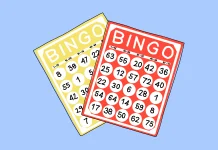Casino Mirage: Where Illusion Meets Probability
In the boundless realm of virtual casinos, what glitters most is not gold, but illusion. A realm where probability is cloaked in spectacle and randomness is disguised as reward. Welcome to the casino mirage—a digital façade meticulously woven from chance and design, engineered to hypnotize even the most seasoned of players.
The architecture of online gambling is more than just code—it’s a finely tuned sensory ballet. From the hypnotic spin of reels to the triumphant flash of a fake jackpot, the interface is less about gameplay and more about psychological choreography. Platforms like pgv2 aren’t simply offering games; they’re staging experiences—an interactive hallucination that convinces the player they’re one click away from destiny.
But peel back the vibrant skin of spinning cherries and lucky sevens, and the cold skeleton beneath reveals itself: probability. Every result, every “almost” win, is dictated by numerical inevitability. Still, players don’t see statistics. They see streaks, luck, hunches. That’s the genius of the illusion—it rewrites how the brain perceives patterns and outcomes.
Slot games especially serve as magicians of misdirection. Their visuals dazzle, sounds reward, and gameplay hooks. The trick? Near-miss mechanics and intermittent rewards. These elements fool the mind into believing a win is just one spin away, when in reality, the odds remain unchanged. The casino mirage thrives on this cognitive glitch, feeding anticipation rather than fulfillment.
Sites like pgvip789 harness this dynamic with precision. Their digital playgrounds are designed to appear spontaneous while functioning with mechanical certainty. It’s not a question of whether players win or lose, but whether they feel in control. And herein lies the trap: the sensation of autonomy in an environment entirely governed by algorithms.
Beneath this shimmering illusion is a predictive engine that learns your behaviors. Win too much? The system might subtly taper the payouts. Linger on a game too long? Expect a pop-up bonus or a “second chance” offer. These tactics extend engagement, disguise risk, and perpetuate the myth of personal momentum.
Even the language of online casinos reinforces the illusion. Words like “lucky spin,” “hot streak,” and “jackpot zone” embed emotional cues that override rational analysis. The mathematics of gambling becomes buried beneath layers of euphoric suggestion. What is simply statistical variance gets rebranded as fate dancing on the screen.
Yet players return, again and again. Not because they believe they’ll beat the system, but because the mirage offers something more potent than money: the fleeting thrill of possibility. In this digital oasis, hope is infinite—even when wins are finite.
In the end, the greatest gamble isn’t on the games themselves, but on perception. In the world of pgv2 and pgvip789, you’re not just spinning reels—you’re navigating a dreamscape of crafted randomness. A space where probability is the engine, illusion the scenery, and belief the true currency.



